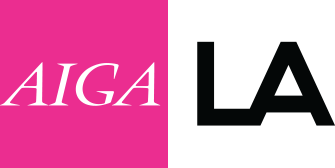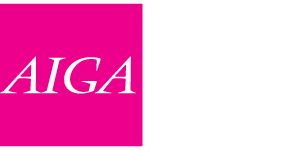In support of AIGA’s Women’s Leadership initiative, AIGA LA is embarking on a series of events, interviews, and discussions to celebrate the achievements of women in design, cultivate awareness of gender-related issues, and creating connections by facilitating relationships within and beyond the design industry.
This interview occurred in Fall, 2015, as AIGA LA prepared for it’s first Women in Leadership panel discussion.
Antionette D. Carroll is the Founder and Executive Director of Creative Reaction Lab, a non-profit social impact design collaborative working to reframe the role of “design” within the social sector, and create viable career pipelines for inspiring social impact designers. Creative Reaction Lab is a training and development platform, not a design firm, and is fulfilling its mission through social impact design enterprise labs (with accompanying prototyping showcases), youth workshops (ideation to implementation), community-wide collaborative design workshops, and social sector design thinking trainings and consultations.
Do you work from an office, from home or other?
I work at home and at a co-working space called CIC@CET. I equally spend approximately 50% of my working time in both locations. Although Creative Reaction Lab has yet to develop its own culture, the culture of CIC@CET is collaborative and encouraging. CIC is about encouraging innovation whilst developing serendipitous collisions.
Please describe your family situation (married, single, kids, no kids, etc.)
I am married with two children (7 year old twin boys).
How does your current status from the previous question impact you in your career?
Oh, does it. As a mother and wife, I have to be more conscientious of my scheduling of after work meetings and out-of-town trainings and pitches. Due to the fact that Creative Reaction Lab is a start-up, in which I am its only full time employee, I have more flexibility of scheduling, allowing me to accommodate my family needs. I am more interested to see how this dynamic will change over time once I begin to hire more employees.
In all honesty, there are some days in which my flexibility is a positive, but then there are some days in which it is very much a negative. Additionally, there are many high-level opportunities I have received and declined because I was concerned with being away from my family too long or missing a birthday. I still struggle to find a balance that allows happiness to all parties, but I am getting there.
From your perspective as a man or woman, are your career goals or current opportunities at all impacted by your gender and or family situation?
My career goals aren’t per se impacted by my gender or family situation because I am overall an ambitious and determined individual. That being said, I will be very candid in stating that I have been treated differently because of my gender–even to the point of being referred to as “woman” or “too argumentative.” While these situations have led to conflicts (internal and external), they continue to make me a stronger advocate of diversity and inclusion and a leader. Most individuals are not aware that I have a family, although I don’t keep it from them. But, once they learn, I regularly receive statements such as “Wow. How are you able to do it?” And, most of the time, these statements don’t come off as reaffirming, but more condescending.
Have you or anyone you know, ever experienced a disparity or career setback that you felt was based on gender or decisions centered on family situations?
As I have four opportunities in which I feel I can and have been discriminated for (gender, race, familial status, background and socioeconomic status), it is hard for me to 100% define situations in which it was caused for one, but not the other.
One of the most recent examples is how myself and other female colleagues where denied promotions into directors over our departments—although we led them—because our executive director, a woman, stated that no one could be a director but her. After two of us left within the same month and I five months later, our replacements were hired and/or promoted into director roles within a year, although both parties had substantially less experience within each department area with two of these individuals being completely new to their areas. Our replacements were males, one white and one Asian.
I could go on to discuss how I had to step in to argue the qualifications of the top finalist candidate because the hiring committee had questioned her ability to do her job after she finished her final presentation with a slide featuring her 6 month old son. The statements moved from her qualifications and background to “does she really have time for a job like this with a 6 month old son”.
And, then, how I have been asked during an interview if I could truly do my job since I was a new mother to twin sons, although I had been in positions higher than them in the past. The list goes on and on. Many individuals can’t overcome their unconscious biases, and in turn, negatively affect the future and success of other individuals.
What do you feel are the biggest challenges to women’s careers when it comes to the creative industry?
Lack of the soft skills, such as negotiating, exerting power, self-promotion to peers, confidence in abilities, etc. These skills are more impactful in one’s career success than I would argue are technical design skills. Whilst technical design skills are key for success within design in general, none of it matters if we are not willing showcase our talents and abilities in a confident manner.
In your community, who stands out to you as a leader and advocate on the topics of equality and diversity? Why?
Locally, these leaders are actual social workers and activists with the diversity and inclusion sector. Some of these individuals have worked within this space for decades while others emerged post-Ferguson. Being at the epicenter of the new civil rights movement, I am constantly inspired by change agents that are on the frontline and change agents that are in the board room. I believe they all play a role making our society more just and fair. How else are we to do this unless we include servant leaders with a variety of experiences and perspectives? I will note that when I think of diversity and equality, I am not just thinking of women’s rights, but equally racial justice, LGBTQIA rights, abilities statuses, etc.
How has your career or perspective as a professional working in a creative industry been impacted by working with women?
Sometimes, women are our own worst enemies. We tend to be overly critical of our female counterparts – for reasons I’m unsure. That being said, some of my greatest mentors were women, especially one’s that had overcome adversity due to their gender and are now ongoing advocates of equality within the creative industries and professional setting overall. And, as a social impact designer, at the local level, this movement is being most led by women, so this had led to some of my greatest collaborations.
Of the women participating in our upcoming panel how do you feel their leadership has impacted your career or professional community?
Jessica’s leadership in design value through her blog and discussions has inspired me to advocate for greater pay and respect for my skills. Although some may argue against her belief that design should not be equated to hourly pay, I rather admire her stance that we should look at design as a holistic problem solving tool and not something as routine as accounting measures. She has impacted my freelance and startup work.
|
By
Published September 14, 2015
|






